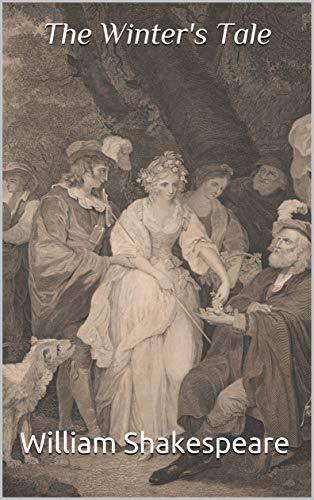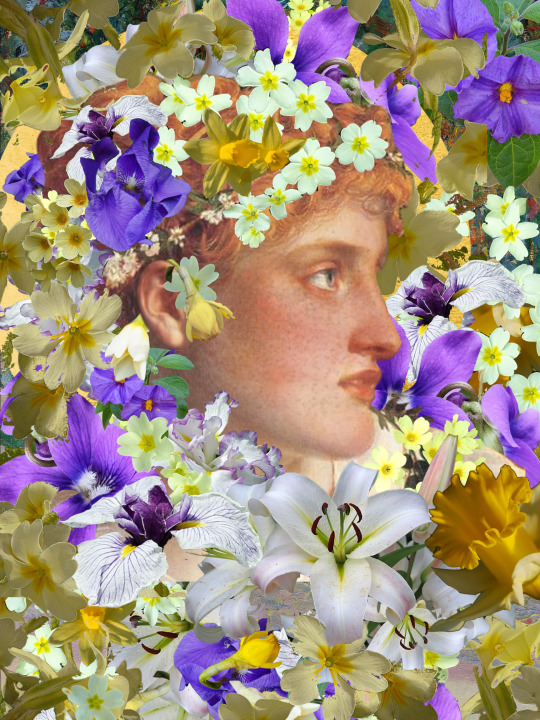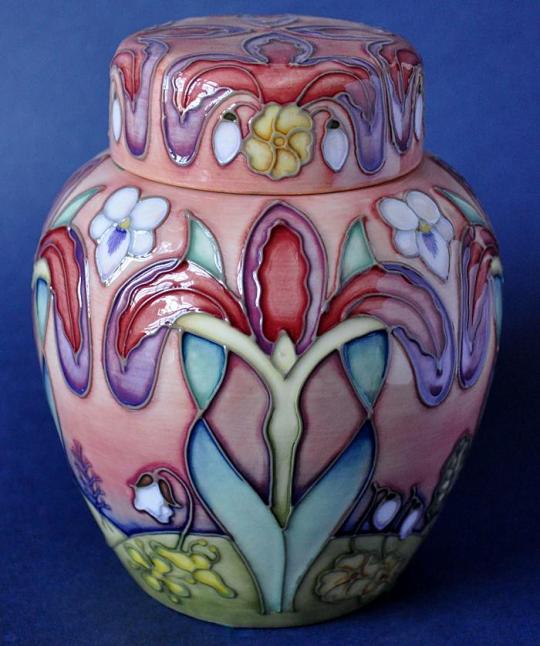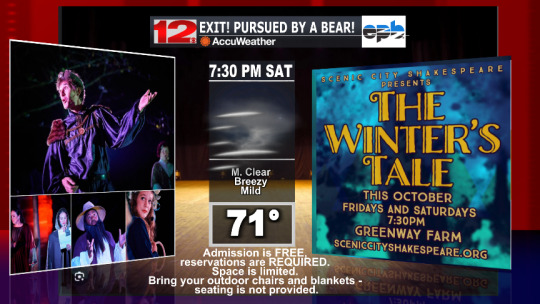#the winters tale
Text
Female rage in shakespeare like 'i would eat his heart in the market place' 'take my defiance! Die, perish' 'yet have we some revenge' 'in rage, Juno-like' 'i will to him and pluck out his eyes' 'let him that makes but trifles of his eyes first hand me' 'Princes and Counties!' not to mention Lady M, Regan, Margaret of Anjou in Richard iii. So much popular media today still can't even pass the bechdel test when shakespeare literally got it four entire centuries ago
#shakespeare#much ado about nothing#measure for measure#coriolanus#the winters tale#macbeth#king lear#richard iii
329 notes
·
View notes
Text
#othello#twelfth night#a midsummer night's dream#two gentlemen of verona#the winters tale#romeo and juliet#merchant of venice#king lear#technically wlw regan and cornwall doesn't only exist in my head butchhamlet did write that and it fucks#but wow do a lot of the best plays only have women who are related
290 notes
·
View notes
Text
I have a theory that the majority of people who're incredibly adamant that characters (ie. Romeo and Hamlet) are adults are the same idiots who think Shakespeare is some complex enigma that only professional scholars should ever even look at.( Because what teenager could EVER TRULY understand what death is. or something). idk. just something about elitism. even though most of his original audience was illiterate. this is a huge stretch but maybe thats why The Winter's Tale isn't as popular, because both Perdita and Florizel are both very explicitly 16 but maybe thats just me.
#og#hamlet#prince hamlet#r+j#romeo#meta#the winters tale#perdita#florizel#NOT saying you can't interpret said characters as adults. i can vibe to a hamlet in his 20s but refusing to see other's pov is weird
86 notes
·
View notes
Text
fuck ace attorney fuck ninja turtles fuck whatever you were following me for this blog is now dedicated to william shakespeare’s the winter’s tale
37 notes
·
View notes
Text


7 notes
·
View notes
Text

Perdita of Sicily and Bohemia
Princess, Daughter of a Shepherd or Shepherdess, Daughter of a King?
The Winters Tale. post - Act 5. Scene 3.
All but Perdita exit. She looks off.
Perdita speaks.
I wonder if there is more story here.
[a pause]
There is, of course. There always is.
A story cannot stand alone -
Not one line holds the next line back
For fear his time will not be shown.
A man writes words, woman recites
Here we go, never-ending plight
And yet I stand here,
Woman, wife, daughter, princess
And even now I wish for more -
Or else, perhaps. A shepherdess,
With the name of royalty.
[Another pause. She laughs without humor.]
A shepherdess! A shepherdess, or a princess?
Who can tell the difference now.
I stand here with red skin and calloused fingers
I use lanolin to treat them, but here!
Where are my sheep, my care?
Sicily’s cold coast holds me away
And my wool will be fine now -
Spun by someone far away,
Carded and combed and washed
By a woman I will never meet.
A farmer in the employ of my father -
My father, a man called Leonates - a king -
Not the shepherd of my upbringing,
Not my beloved carer, but a man in a castle
Who cast me away, doomed my mother to death,
At a glance which he now knows was nothing
Leonates claims me as his own daughter, now
But as an infant - fresh from the womb,
The most innocent of gods creatures
He set me to die, to be left for the wild.
And I am lonely, here - I have a husband, my dear, Florizel,
but I knew him by another name not weeks ago,
And I knew not of his father - the King,
Another king, who now calls me daughter
While my own father stands there, beside me,
Dressed in finery I could never have imagined in my youth,
My brother beside him, his own fine clothes that do not fit
The fool I know him to be.
Here, they too, are called kin -
Leonates calls my father ‘brother,’ my brother ‘son’.
My mother, a woman I knew not of and then believed to be dead in only a minute,
Now suddenly stands tall, marble come to warm life.
And a brother, too - not that which has been with me through my childhood,
But another, dead from when I was hardly a day old. Shall I mourn him too?
A child, so much younger than I am now, dead nearly all my life,
but with blood and lineage the same as mine. He fell with grief,
for the woman he called mother his whole life, and I wonder where my grief should be? Should it be long gone, with the rest? Should I be celebrating this joyous reunion?
I should, I know! I know, I know, I know!
And still there are more to know - Paulina, who must be my mother’s -
(‘the queen’, instead, for I cannot find it in myself yet to call her mother,)
Handmaiden, a woman loyal beyond words.
She embraced me upon recognition, gave me words of comfort,
And so I am grateful to her,
And the man Antigonus, her husband, whom they tell me is long dead,
Killed while saving my life. My life, worth that of this noble man’s.
But Paulina stands as if she is indebted to me - she bids me bow to my mother,
As if I was not mourning her death but a moment ago -
This, I think! I am told I have a mother, told she is dead, told we are to see her likeness, told she is alive
And now Leonates wishes us to speak
To know one another, our lost time -
Must I? Must I know this life?
I am happy with my love, and with the wealth my father and brother, the shepherds, have received
I would not deign to lack forgiveness, for the gift I have been given
In love, and wealth and family, both old and new.
But here I stand and I miss my sheep! One, I had raised since its birth
An ewe, by the name of Dorcsa - a light joke, a tease amongst friends.
Dorcsa now, I wonder, looks for me.
I know full well she does not - I know the nature of sheep,
So long as one is feeding them,
they have no wist for those who have fed before
So perhaps she looks not for me,
But I for her - I see her, and myself, a youth,
Embracing her warm coat, picking burrs out of the wool
which I would later help my father to carefully shear.
I had imagined I would do this - shearing and burr-picking
- And feeding and grazing and corralling -
For the rest of my life, and now I know not if I will do it ever again
It is hard work, for certain, but it is the work I know.
Will the calluses on my hands go soft?
Will my skill with the sheep waver?
Will I know no-longer how to create yarn from the raw wool,
will I remember only bits of my once treasured profession?
[A pause. She is imagining her sheep, and then she looks back towards where Hermione’s ‘statue’ had stood.]
I had dreamt of my mother, throughout my youth,
And yet even today, with Kings and Lords pronouncing the power of dreams,
I know that this visionary image was not the woman who has now come to life,
As a child, and, I must confess, even so recent, I did not picture
The Queen Hermione, who stands before me now and tells me I am her own.
I saw, in those dreams, another woman, a working woman,
who shared my freckled skin and sun bleached hair,
not the pale visage and carefully arranged locks of the Queen,
and this woman, my imagined mother,
wore a crown of daisies, not gold, as Hermione does even now,
As the man my father Leonates takes her away from this old house.
I am old enough now, I know now well enough,
That this was not some ought but natural vision
But only the imagination of a youth
Who had never known from whose breast she came.
Somehow, though, I think that woman from the dream
May have made more sense as the mother to me,
A woman who now stands as a Princess - in two ways,
That of Bohemia and that of Sicily!
And yet wishes for the fields and labor that she has always known.
My new father-in-law, at the feast which I hosted,
Which seems ages ago now, in my lost home of Bohemian fields,
Said that I appeared noble, despite my poor family.
“She smacks of something greater than herself,” he said,
When he did not think I could hear, “Too noble for this place,”
He called me, and I heard, and at the time, I thought it a compliment.
I am noble, I had thought, while I danced like a child, I do appear great.
Now I think of how he must have meant it - a girl pretending,
Imagining she could be good enough, noble enough,
to marry the Prince to whom I am now wed.
Well it is alright now, Polixenes must have said,
now that I know from whose loins she came.
The noble Leonates,
who would cast an infant away for no crime of its own,
who would send his noble wife to prison because of an anxious thought.
It is his daughter, his offspring, who may marry Florizel,
Not the daughter of the poor Shepherd,
Who would find a baby alone and take her in with no question,
Who would raise her as his own, with all the love in his heart.
I told Florizel, back in Bohemia,
“I told you so,” I told him,
That nothing good could come of our relationship.
I told him, “I’ll queen it no inch farther,
But milk my ewes and weep.”
And now I do not weep, and I am without my ewes,
And I am likely to someday be Queen,
Alongside the king of that man I met by chance,
When I thought my life would be only ewes and pastures.
So now I stand here in this empty hall.
Soon enough I shall rejoin my family -
those who have lived by that name for many years,
and those who have not.
But for just a moment I will mourn.
The shepherdess Perdita, who is named for loss,
With the red cheeks and freckled skin and mess of hair
And the shepherd family and the rural home and the sheep named
In gentle teasing of friends.
And I will allow her to leave, sail away on the west wind,
Back to her rolling hills and her sheep and her childhood,
As I step towards the Princess of Sicily and Bohemia.
I wrote / made this for class lol but I was proud of it. Perdita is a character in Shakespeares The Winters Tale, who is a princess abandoned by her royal father as an infant and raised by a shepherd and his son. At the end, she has very few lines but basically seems to just accept her new life, and I wanted her to have something to say - my first stage direction here is meant to sit at the very end of the play.
I photoshopped the image myself - it's from a painting by Frederick Sandy's that's just called Perdita. The flowers are all ones she mentions in (one of? I can't remember) her first appearances in the play.
I wrote a bunch about this because it was my final project for this class, but it's mostly rambling so I didn't put it here lol, probably already rambly enough.
#writers#shakespeare#the winters tale#perdita#pastoral scene#pastoralism#romanticism#my writing#my artwork#:)#does this count as digital art (me photoshopping real art)#poetry#soliloquy#my bs art
5 notes
·
View notes
Text
Just finished the winters tale and like. Why is shakespeare insane. Can’t we have a normal happy ending? Why do we need a magic statue? Just to be weird? Just to be creepy???? Why did they say the magic statue can’t talk and then she immediately gave a speech
#shakespeare#the winters tale#IM VERY CREEPED OUT#also tbh the whole back half of this play has kind of felt like lazy writing ESPECIALLY the magic queen statue#we shall see what my Brit lit class says about it. maybe I will change my mind
3 notes
·
View notes
Text
So I’ve been watching Cheek by Jowl’s production of The Winter’s Tale and taking notes, and there are two that I’m really proud of/things I think are interesting about this production/parts of the general play that I find interesting:
“Leontes is literally crazy now. And when a king is crazy, it’s dangerous. Everyone is deeply disturbed and confused. Everyone is holding him back and trying to prevent him from lashing out. He’s like a rabid animal. And that’s really interesting, because he calls his wife a thing, but he’s not acting like a rational person. But he thinks he’s very rational.
Even full of hatred, Leontes loves so hard. He clearly still loves his son and cares about him so much. In one of the scenes, he seems very distraught over his wife’s “betrayal,” and he is very emotional about it. When he basically starts crying, you realize how much he fully believes it.”
“This man said that he hasn’t been sleeping, like, at all. He’s having a mental breakdown and I kinda feel bad? Like, I’ve had my own ‘episodes’ that have caused me to act very irrationally and emotionally, so I understand the feelings. I also remember the personal aftermath of these episodes, and any guilt that may occur once you come back down to earth. But he’s also hurting innocent people, and it’s really disturbing to see, and you are also perfectly justified in feeling very angry at him for doing this to those who love him.
So that makes it all the more tragic to me. He’s truly in a state of mental unwellness, and when he recovers, he’ll see the damage he has caused, and the damage itself is incredibly tragic as well. Hermione loves and trusts him, and you can see the hurt and betrayal written on her face when he turns on her. Even though he is the more touchy-feely one, she does love as deeply as him. And she doesn’t even seem that mad, just hurt, and she probably sees how unwell he is. And when you realize that a loved one is in a state like that, it’s horrible, because you love them, and one of the main things you see is their suffering. But you yourself are suffering from the hurricane.”
I just love this production because, as I said in my notes, Leontes feels so passionately about everything. If he feels love, he feels it intensely. If he feels even a twinge of jealous, he becomes full of hate. He is full of extremes, so it almost makes sense that he’d react so intensely to something so small. But it also makes sense that everyone would be surprised by thing. Because again, he has only really shown them his loving side, and you would never expect something from someone who loves so intensely.
Which is really sad. All of it is.
#shakespeare#William Shakespeare#shakespeare plays#the winters tale#the winters tale hermione#leontes#mental illness#shakespeare mental illness#tragedy#character study#cheek by jowl#theatre#Theater#the classics#mini essay#shakespeare analysis
12 notes
·
View notes
Text
Moorcroft Pottery The Winter's Tale 769/6 Rachel Bishop
Limited Edition of 250

Moorcroft Pottery The Winter's Tale 769/6 Rachel Bishop
Limited Edition of 250
#moorcroft#moorcroft pottery#the winters tale#rachel bishop#b and w thornton#stratford on avon#23 henley street#stratford upon avon#warwickshire#england
2 notes
·
View notes
Text
florizel and perdita from the winters tale are lesbians
8 notes
·
View notes
Text
#the tempest#cymbeline#pericles#the winters tale#measure for measure#the merchant of venice#alls well that ends well#troilus and cressida#shakespeare#willy shakes
3 notes
·
View notes
Text

[Exit, pursued by a bear.]
5 notes
·
View notes
Text
shakespeare plays about a guy who thinks his wife/gf is cheating on him make me so nervous
#it's so haha funni until it's NOT#othello#much ado about nothing#the winters tale#merry wives of windsor#theres more i cant think of#in most of these the guy has reason to believe his wife is cheating on him#but in twt he's just like huh she sure is hanging out with the guy i asked her to hang out with must be banging#like dude nooooooo
6 notes
·
View notes
Text

"#Shakespeare in the Park returns to Greenway Farm in Hixson, TN this October with #TheWintersTale. FREE performances will run Friday and Saturday evenings in October. Catch shows beginning at 7:30 PM October 6 & 7, 13 & 14, 20 & 21, 27 & 28.
Admission is FREE, reservations are REQUIRED. Space is limited. Bring your outdoor chairs and blankets - seating is not provided.
RSVP now at sceniccityshakespeare.org/inthepark. Arrive early to enjoy fare from local food trucks and other vendors.
#Scenic City Shakespeare#Chattanooga Shakespeare#Chattanooga Tennessee#Shakespeare In The Park#The Winters Tale#Hixson Tennessee#Greenway Farm#Zounds and Forsooth!
0 notes
Text
unrelated of course but the choice to make our perdita and florizel lesbians was the most genius move on our directors part
#everything about their relationship has sapphic energy#a dramatic reading by cassidy#the winters tale
0 notes
Text
My favorite Shakespeare thing is when he writes a major plot point but just has someone tell us about it to save on special effects.
Hamlet gets kidnapped by pirates but we don’t see that part. It’s a letter.
The Oracle of Delphi shows up in the Winter’s Tale and rather than do all the special effects required to make that adequately supernatural, two guys come on stage and go “woah that was cool”
There’s a big storm on the night that Duncan is murdered and we learn about this when half the cast of Macbeth says “sure was stormy last night”
Shakespeare, the OG low-budget director taking the easy way out.
5K notes
·
View notes